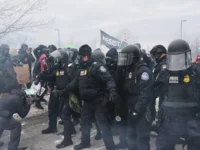Hamas Responds Positively to Gaza Ceasefire Proposal

In a significant step toward ending months of war in Gaza, Hamas announced on Friday that it had delivered a “positive response” to a proposed 60-day ceasefire deal. The announcement raises hopes for a breakthrough after several failed attempts at negotiations between Hamas and Israel.
In a public statement, Hamas confirmed that it was ready to immediately engage in talks to finalize the terms and implementation of the ceasefire framework, submitted through international mediators. This marks one of the most promising developments in months, with both sides now positioned to begin final-stage negotiations.
Israel had already expressed its willingness to move forward with the U.S.-backed ceasefire framework. An Israeli official familiar with the matter said the adjustments proposed by Hamas were mostly minor and unlikely to prevent a deal. The plan calls for a temporary halt in hostilities and the phased release of hostages held in Gaza, along with reciprocal prisoner releases by Israel.
Details of the Proposal and Humanitarian Commitments
Under the current proposal, Hamas would release eight living Israeli hostages on the first day of the truce, in exchange for Palestinian prisoners. Throughout the ceasefire, more hostages—both living and deceased—would be released on designated dates. In turn, Israel would gradually pull back its military presence in parts of northern Gaza.
The ceasefire talks gained new urgency following recent clashes between Israel and Iran. Qatar, one of the key mediators, quickly reignited indirect discussions between Israel and Hamas, aiming to revive stalled diplomatic momentum. A renewed version of the ceasefire proposal was submitted this week, including more robust guarantees from the United States to encourage both parties to engage fully.
One major change in the revised agreement is the promise of greater humanitarian assistance to Gaza. The deal ensures aid will be delivered through traditional international relief channels instead of controversial Israeli-controlled mechanisms.
High-Level Talks and Political Shifts in Israel
U.S. President Donald Trump, who has pushed strongly for a deal in recent weeks, expressed optimism that an agreement could be reached soon. “We have to get it done,” he stated, praising the roles of Qatar and Egypt in facilitating the process. Trump also warned Hamas against stalling, stating that the current offer may be the best they receive.
According to sources close to the negotiations, proximity talks are expected to begin soon—placing both sides in the same building, with mediators shuttling messages back and forth in rapid succession. These talks may last days but could conclude faster, depending on how quickly unresolved details are addressed, particularly the timeline for Israel’s withdrawal during the ceasefire.
The latest developments follow growing internal and external pressure on Israeli leadership. Prime Minister Benjamin Netanyahu, facing criticism over the ongoing war, acknowledged that military operations in Iran have opened “new opportunities” for diplomatic breakthroughs—including the safe return of Israeli hostages.
Netanyahu is set to visit Washington for high-level meetings with President Trump. Ahead of the visit, he will gather his full cabinet to review the proposal. While some right-wing factions oppose the deal, centrist and opposition leaders have voiced support, potentially giving the ceasefire agreement the political backing it needs.
As diplomatic efforts intensify, the world watches closely for what could be a pivotal shift toward peace in the region.









